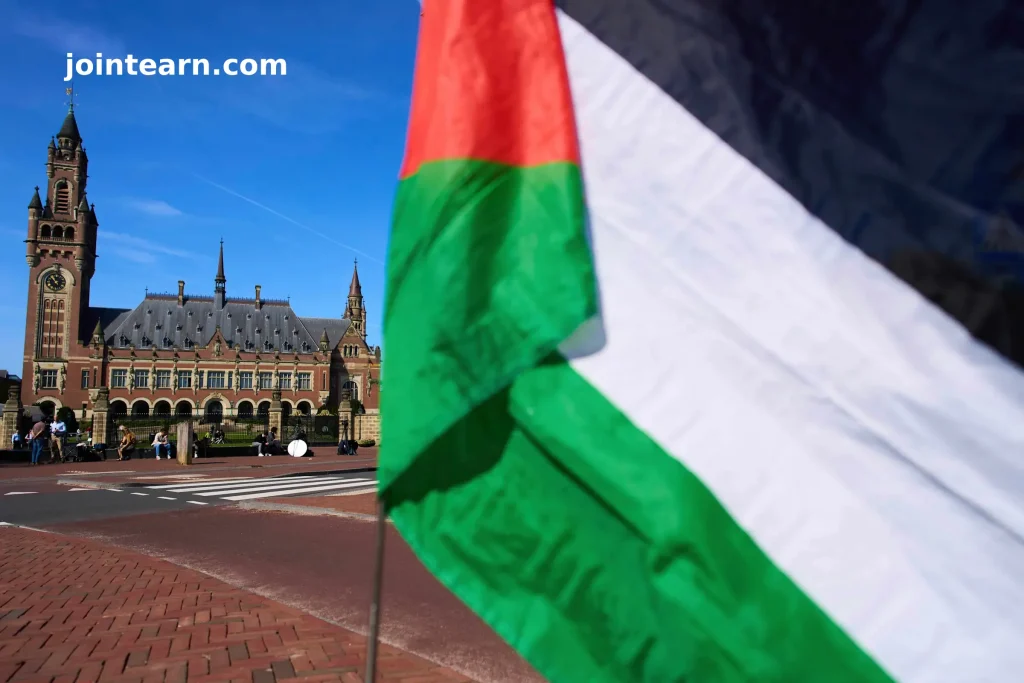
International Court of Justice Set to Deliver Advisory Opinion on Israel’s Humanitarian Responsibilities
The International Court of Justice (ICJ), the United Nations’ highest judicial body, is set to deliver a crucial advisory opinion on Wednesday concerning Israel’s legal obligations to ensure that humanitarian aid reaches Palestinians in Gaza and the occupied West Bank.
This ruling could have significant implications for Israel’s international standing, the U.N.’s humanitarian operations, and the broader interpretation of international humanitarian law in conflict zones.
The case was brought before the ICJ after the U.N. General Assembly formally requested guidance in December 2024, following Israel’s decision to ban the U.N. Relief and Works Agency (UNRWA) — the main humanitarian aid provider for Palestinians — from operating in Gaza earlier this year.
Background: UNRWA Ban and Humanitarian Crisis in Gaza
Israel’s ban on UNRWA took effect in January 2025, amid accusations from Israeli Prime Minister Benjamin Netanyahu that the agency had been infiltrated by Hamas. UNRWA has strongly rejected the claims, asserting that its mission remains strictly humanitarian.
Following the ban, Israel halted all aid shipments for three months, creating severe food and medical shortages across Gaza. Despite limited relief allowed later, conditions deteriorated rapidly. By August 2025, international observers declared a famine in parts of the enclave, while thousands of displaced families struggled to access basic necessities.
Israel later attempted to reroute aid through the Gaza Humanitarian Foundation (GHF), a U.S.-backed private organization, but the move was widely criticized as ineffective and politically motivated. GHF has since suspended its operations following the recent ceasefire.
Ceasefire Agreement and Ongoing Humanitarian Efforts
The ICJ’s upcoming opinion coincides with a fragile U.S.-brokered ceasefire, which took effect on October 10, 2025, aiming to end the two-year conflict in Gaza. Under the truce, 600 humanitarian aid trucks are permitted to enter Gaza daily.
According to Hamas negotiator Khalil al-Hayya, Israel has been largely compliant with aid delivery terms under the current ceasefire. However, the situation remains tense following a series of Israeli airstrikes earlier this week that reportedly killed two soldiers during renewed clashes.
During hearings in April 2025, Palestinian Ambassador Ammar Hijazi accused Israel of using “starvation as a weapon of war”, asserting that it was blocking humanitarian organizations from saving lives. Israel, which boycotted the hearings, submitted a 38-page written defense, calling the process “biased and politically motivated.”
Legal and Political Significance of the Advisory Opinion
While ICJ advisory opinions are nonbinding, they carry substantial legal and moral authority under international law. Experts say this opinion could reshape global humanitarian policy, particularly regarding states’ obligations in occupied territories.
“We cannot allow states to decide unilaterally where the U.N. can or cannot operate,” said Mike Becker, an international human rights law scholar at Trinity College Dublin. “This advisory opinion is an important opportunity to reaffirm the universality of humanitarian law.”
Under existing U.N. treaties, countries are required to cooperate with U.N. missions and facilitate their access to civilian populations in need. Disputes over those obligations, the ICJ notes, must be resolved through its advisory process and accepted as decisive by the parties involved.
Previous ICJ Rulings on Israel
This is not the first time the ICJ has ruled on Israel’s actions in the occupied Palestinian territories. In 2004, the court declared that Israel’s West Bank separation barrier violated international law. In 2024, it issued another opinion deeming Israel’s continued occupation unlawful and urging an immediate halt to settlement expansion.
Israel has consistently rejected such rulings, arguing they ignore the country’s security concerns and are driven by political motives.
Connection to ICC Arrest Warrants and Genocide Allegations
The ICJ proceedings are separate from a parallel case at the International Criminal Court (ICC), where arrest warrants were issued last year for Prime Minister Netanyahu and former Defense Minister Yoav Gallant. The ICC accuses them of using starvation as a method of warfare and targeting civilians — charges that Israeli officials strongly deny.
In addition, South Africa’s genocide case against Israel, also before the ICJ, continues to gather international attention. Israel maintains that the claims are “baseless” and that South Africa is acting as a political advocate for Hamas.
Death Toll and Humanitarian Impact
The ongoing war in Gaza, triggered by Hamas’s October 2023 surprise attack that killed 1,200 Israelis and took 250 hostages, has left over 68,000 Palestinians dead, according to Gaza’s Health Ministry. These figures, though disputed by Israel, are widely accepted by U.N. agencies as the most reliable available data.
As the ICJ prepares to deliver its opinion, humanitarian organizations warn that millions of Palestinians remain dependent on international aid for survival, and any restrictions could further deepen Gaza’s humanitarian catastrophe.
“Whatever the ICJ decides, the urgency is clear,” said a spokesperson for Médecins Sans Frontières. “Access to food, water, and medicine must be guaranteed — not politicized.”


Leave a Reply